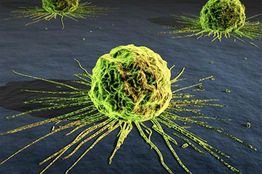
Monash University study - Prostate cancer cells that survive androgen treatment can be targeted for better cancer treatment
Singapore: Researchers in Monash University, Australia, have found prostate cancer cells that survive androgen withdrawal treatment. Previously unidentified, these cells are potential targets for future treatments. As they are present early in disease development, there is the possibility of therapy before the cancer reaches the aggressive, incurable stage.
For advanced cases, the best available treatment for prostrate cancer involves drugs that effectively mimic castration and so deprive the tumour of the male hormones that cause it to grow. Androgen deprivation therapy is highly effective; however, the tumour eventually becomes resistant to the treatment and regrows in an incurable form.
Led by Professor Gail Risbridger and Dr Renea Taylor of Monash University, the researchers obtained tumor samples from 12 men with early stage, localised prostate cancer. Then, using mouse models to mimic the progression in humans, they closely observed how the cancer cells responded to and survived androgen deprivation therapy. Even after several weeks of androgen deprivation, residual tumour cells continued to persist.
"The results indicate that these persistent cancer cells somehow differ from cancer cells that respond to androgen withdrawal, and are likely to be the precursor cells that lead to advanced androgen-resistant disease. We will now investigate how to effectively target these cells," Professor Risbridger said.
Professor Mark Frydenberg of the Monash Department of Surgery, and chairman of the Department of Urology, Monash Health, said that, "This new information suggests that potentially some of the powerful targeted therapies now being used for advanced prostate cancer may have a role to play in earlier localised cancers, especially those with high-risk features, and this hypothesis can be actively tested. It also allows for testing of novel new compounds to determine if these agents have effectiveness against these hormone resistant cells."




